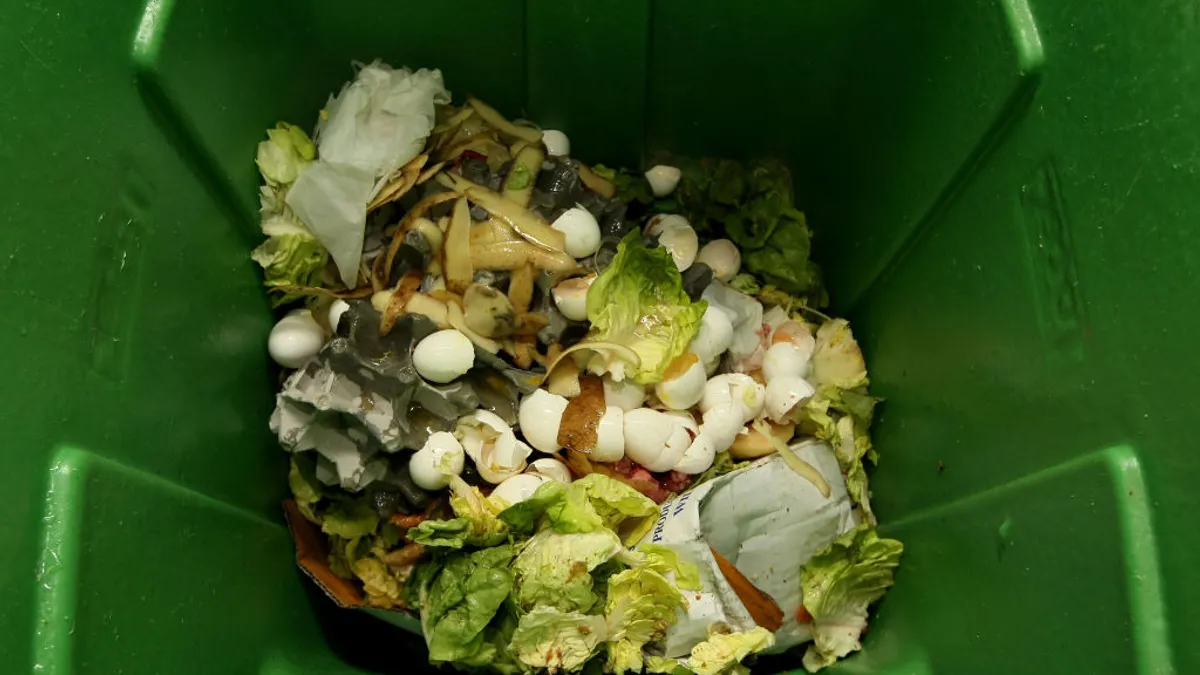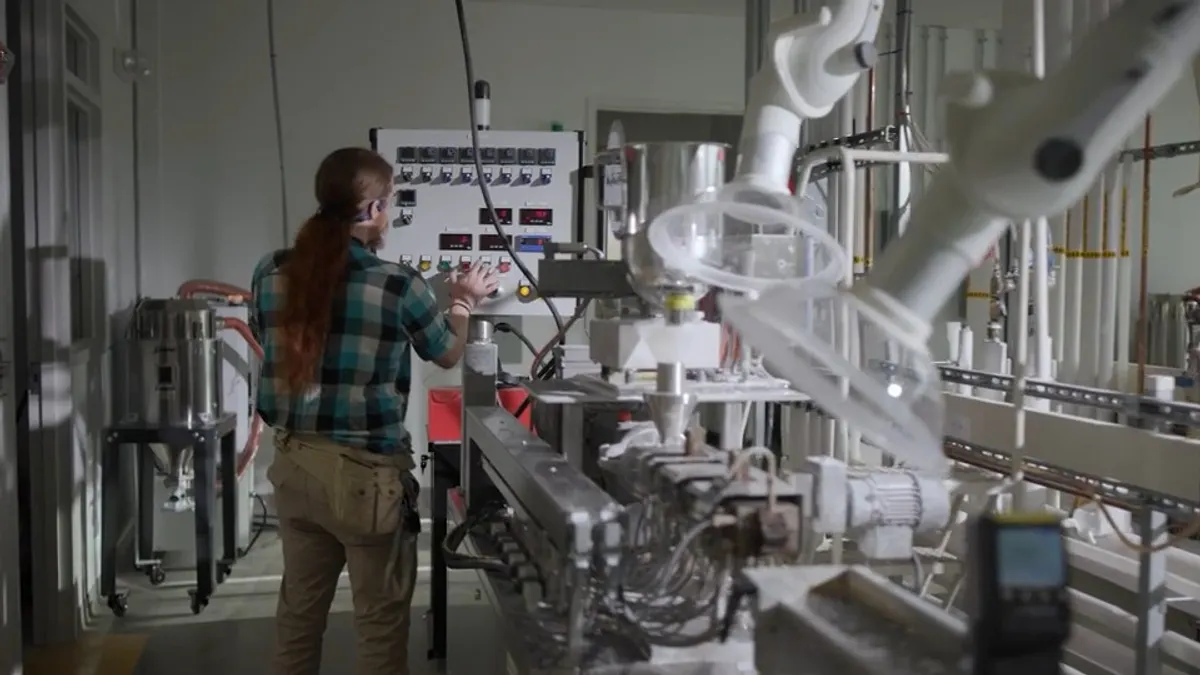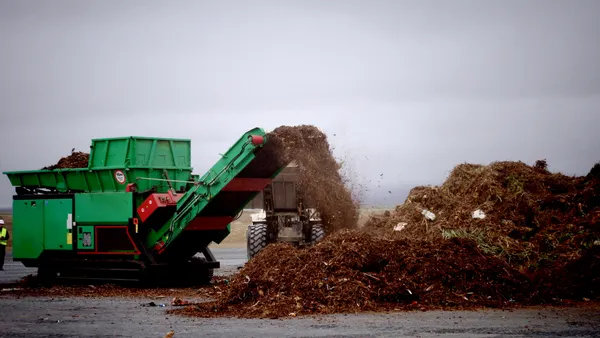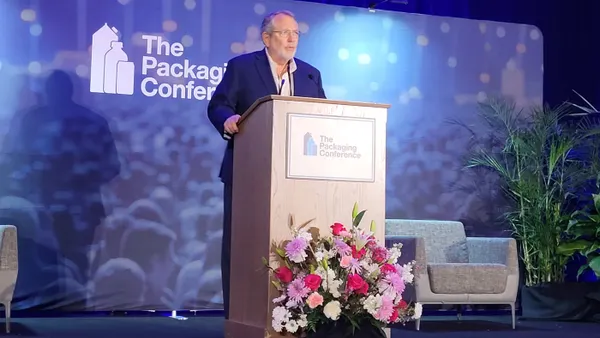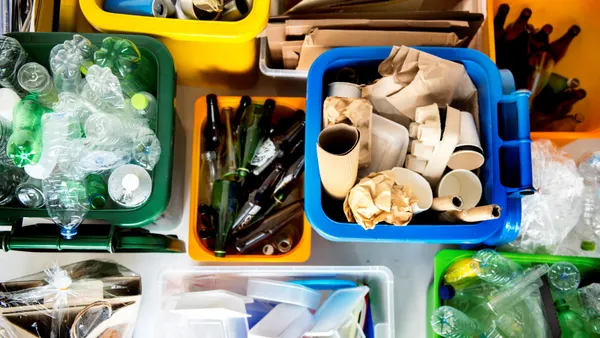Companies with compostable packaging on the market in California still don’t know whether such products could effectively become banned next year.
The issue goes back to 2021, when California adopted AB 1201, a law aimed at tightening specifications for plastic products labeled as “compostable.” The law states that come Jan. 1, 2026, for an item to be labeled compostable, it must be an “allowable agricultural organic input,” as defined by requirements of the U.S. Department of Agriculture’s National Organic Program. However, the law provided that CalRecycle could potentially grant a five-year compliance extension.
The Biodegradable Products Institute has previously petitioned USDA to update its rules such that compostable packaging could be allowed, but the agency has yet to make changes. As such, the advocacy and standards certification group formally requested an extension from CalRecycle, but it hasn’t heard any updates yet, according to Alex Truelove, BPI’s legislation and advocacy manager.
USDA’s rules on this are now decades-old, Truelove said. “So regardless of how you feel about compostable products, I think it’s desperately in need of being updated,” especially when considering recent material innovations, he said.
“We need more time. Things work really slowly at the federal level, we have a new administration, there are just a lot of intermediate steps that are required,” he said. Even though the deadline is months away, “a lot of companies have to make decisions months in advance of making a change to the labeling of their products.”
Stacey Halliday, partner at the law firm Arnold & Porter, described the AB 1201 situation as just “one component of a very volatile and challenging space where regulators are not necessarily all speaking to each other in real time.”
The law coincides with California’s extended producer responsibility for packaging law, SB 54, which calls for all packaging and single-use plastic food ware to be recyclable or compostable by 2032. That said, California’s step back on EPR regulations this year suggests “there’s some receptiveness on the practical realities of some of this work, and perhaps an opportunity to align those advocacy efforts, given all the intersections here,” Halliday noted.
In this limbo, companies with compostable packaging can review their portfolios and try to prepare for a scenario in which an extension is not granted, she said. “What levers do you need to pull, and where can you mitigate risk?”
Ultimately, this issue has the potential to have a “strong chilling effect” in the compostables sector, Halliday noted.
Without an extension, “it's going to completely undo all of these years of innovation and policy progress that we've been working toward,” said Alyssa Pace, communications lead at Sway, a California-headquartered company specializing in seaweed-based packaging. “As innovators, we already face tons of barriers and complexities.”
For now, while BPI says it’s keeping members updated, it’s up to individual companies to assess their own risk tolerances and “decide to pull the plug, if they go that direction,” said Truelove.
“I'm sure it's probably causing some headaches and probably making decision-making hard for companies that may have been thinking about investing more in compostability,” Truelove said. What happens in the prominent California market could have “a lot of negative ripple effects across the country.”
Correction: A previous version of this story misrepresented Sway's future ability to label home-compostable products in California. Sway says that its products will not be able to be labeled as compostable either industrially or at home as AB1201 currently stands.


